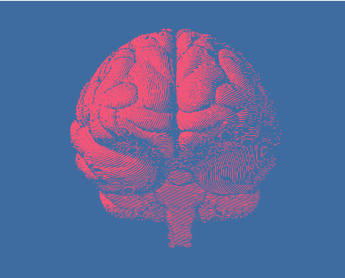This large study conducted by the U.S. Department of Veterans Affairs showed these findings:
a. the cumulative risks of repeated infection showed that the risk and burden increased in a graded fashion according to the number of infections b. one or two or more vaccines did not change the outcome c. reinfection contributes additional risks of all-cause mortality, hospitalization, and adverse health outcomes in the pulmonary and several extrapulmonary organ systems We are facing an eponymous tidal wave and are standing in the path of a tsunami, the might of which has never been seen. And there is an especially urgent need to understand why the brain is being hit hard in the aftermath of a COVID infection.
symptoms and found that while many patients showed improvement, the majority still had some neurological symptoms.
This is the longest follow-up study of the neurological symptoms among long Covid patients who were never hospitalized for COVID. Researchers found lingering debilitating symptoms affecting quality of life for over 14 months after the infection had passed. A subset of seven percent of participants had a first-to-be-seen set of symptoms that included a paring of cognitive deficits, tremor, and difficulty balancing.
A Cognitive Clinic at Harvard estimates 22% to 32% of patients who recovered from COVID-19, yet find they still have brain fog as part of their experience of long COVID, or post-acute sequelae of SARS CoV-2 infection (PASC). Brain fog, a term used to describe slow or sluggish thinking, can occur under many different circumstances — for example, when someone is sleep-deprived or feeling unwell, or due to side effects from medicines that cause drowsiness. Brain fog can also occur following chemotherapy or a concussion. A recent study by a group of German researchers suggests that even people who don't notice signs of cognitive impairment can have problems with memory and attention after recovering from a mild case of COVID-19. Another study evaluated the cognitive function of COVID-19 patients six months after they were hospitalized with an infection. To their surprise, over 90% of their total cohort reported at least one neurological symptom with many if not most reporting cognitive impairments. It’s no wonder we are seeing rising numbers of patients become disabled due to PASC, as detailed here in one of our latest long COVID series blogs. For more about the subsequent and ongoing issues post-infection, see: https://www.suzannegazdamd.com/blog---long-covid/long-covid-and-the-rise-in-disability Additionally, this video provides an excellent explanation of what’s happening in the brain of some patients followinghttps://www.science.org/content/article/here-s-what-we-know-about-covid-19-s-impact-brain
0 Comments
Your comment will be posted after it is approved.
Leave a Reply. |
AuthorSuzanne Gazda M.D. Neurologist Archives
January 2024
Categories |



 RSS Feed
RSS Feed